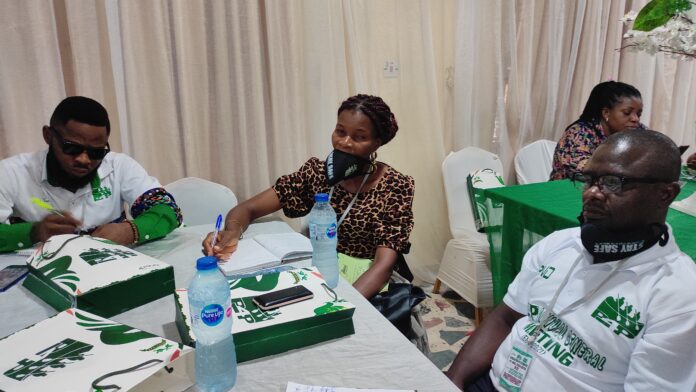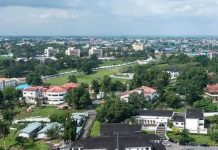Otherwise called Volunteerland, Voluntary Sector, Civil Society (CS) has been defined by the World Bank as “a wide array of organisations: community groups, non-governmental organisations [NGOs], labour unions, indigenous groups, charitable organisations, faith-based organisations, professional associations, and foundations,” who retain the power to impact the activities/actions of elected public officials and businesses.
Civil society –a community of citizens connected by common interests and collective activity, is rightfully termed the third sector, distinguishing it from the public (first) sector of policymakers–the part of an economy that is controlled directly by the state, and private (second) sector of businesses –the part of the national economy that is not under direct state control.
According to a 2013 report titled The Future Role of Civil Society, the activities of Civil Society includes “holding institutions to account and promoting transparency; raising awareness of societal issues; delivering services to meet education, health, food and security needs; implementing disaster management, preparedness and emergency response; bringing expert knowledge and experience to shape policy and strategy; giving power to the marginalised; and encouraging citizen engagement.”
Partners for Peace in the Niger Delta (P4P) created in 2013 with chapters across the 9 states of Nigeria’s Niger Delta region and supported by the Foundation for Partnership Initiatives in the Niger Delta (PIND) and other organisations with a mission is to build social capital around peacebuilding through amplifying the voices of positive actors, building a network of self-identified agents of peace, and leveraging that network through facilitation, small grants, and capacity building is a proud member of the Volunteerland.
In Cross River alone as at 2020, there were 250 estimated members of the P4P network with a spread of 150 males, 75 females and 25 other corporate/organisation-members who have been engaged in peace building and conflict resolution interventions across the length and breadth of the state… From the hills of Obanliku to the rivers of Bakassi. The fact is, there is hardly, at least one community of the 18 LGAs/3 Senatorial Districts of the state that the impact of the P4P in respect of peace building initiatives has not been felt.
In 2020, the P4P embarked on peace building interventions in Odukpani, and Biase especially the age-long Ikot Offiong/Oku Iboku communal crisis and the Erei communal crisis respectively: by reason of these intervention, the P4P embarked on facilitations in with journalists in the state on peace journalism, she met with the security infrastructure in the state especially with Nigerian Police repeatedly, traditional rulers, community leaders etc. These interventions reportedly reduced these said conflicts by 10%!
In 2021, the P4P through its Prevent Team is continuing its activities in Erei in Biase with its intervention stretching far into neighbouring Ebonyi state where Cross Riverians are residents as internally displaced persons (IDPs) owing to conflicts. Again, the Ebom-Ebijakara-Usumutong-Ediba Communal Crisis that has lasted for over 20 years picked the interest of the P4P this year such that she is halfway into her conflict resolution intervention there already with positive responses from the peoples and government of Abi LGA. The P4P network in the state is already prospecting into what initiative it should delve into come 2022.
But, more importantly, the depth of capacity building of peace actors in the P4P is unprecedented: we have experts in Early Warning and Early Response (EWER systems), Conflict Analysis, Monitoring & Evaluation Reporting (MER), Proposal Writing, Mentoring and the list continues. The question that may be begging for explanation in the minds of the readers will be: do(did) we have such patriots in the P4P and such laudable interventions in Cross River and we barely hear of their activities? My response is in the affirmative. More often than not, civil society go about their respective objectives without deliberately seeking attention. For them, the facts should speak for themselves.
In doing all of these, the P4P complements the special responsibility of protection of lifes and property of the government as well as strengthen the advocacy on the sanctity of the right to life of Nigerians residents and indigenous to Cross River.
Efio-Ita Nyok writes from the ancient port city of Calabar.










